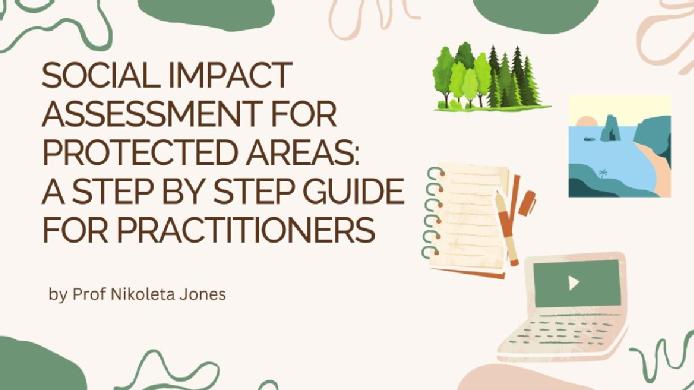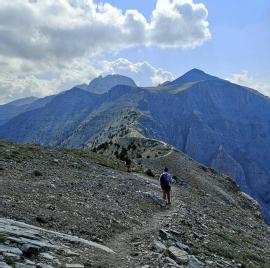FIDELIO Project news
End of Project-List of Publications and Reports
All of our scientific publications are available open access on this page
All of our policy reports and social impact assessments are available on this page.
Matsalu National Park: exploring change of people's perceptions through time
Our new report is now available capturing change of perceptions for Matsalu National Park in Estonia between 2021 and 2024. Matsalu National Park known for its biodiversity and eco-tourism, was the subject of social surveys and personal interviews in 2021 and 2024 to assess its social impacts and public perceptions. The 2021 survey established a baseline, highlighting economic benefits, land use changes, and community involvement, as well as public views on the park’s significance and management. The follow-up research in 2024 aimed to identify trends and shifts in public opinion, influenced by any new policies or developments since the initial survey. The results offer insights for sustainable management and development of the park.
Read the full report here
New report available - Triglav National Park: exploring people´s views and social outcomes

Pr. Nikoleta Jones has led a new report exploring people´s views and social outcomes of the national park in Slovenia . You can access the full report through our Reports and publications areaLink opens in a new window or directly hereLink opens in a new window:
Black Forest Survey 2023 now closed but Warwickshire Wildlife Trust Nature Reserves survey is still open!
Our Black Forest survey has now closed and we would like to thank all participants who filled in the questionnaires. We will be comparing this data with those we selected in 2021 and a report will be ready by the end of March 2023
Our Warwickshire survey for the Warwickshire Wildlife Trust Nature Reserves is still open: warwick.ac.uk//fidelio/wwt
Webinar by Pr. Jones at Europarc Federation
On Tuesday 5th Dec, Pr. Nikoleta Jones has been invited by EUROPARC Federation to lead a webinar on conducting social impact assessments for protected areas: a step by step guide for practitioners
The EUROPARC Federation is the network for Europe’s natural and cultural heritage. The Federation works to improve the management of Protected Areas in Europe through international cooperation, exchange of ideas and experience, and by influencing policy.
The EUROPARC Federation is dedicated to practical nature conservation and sustainable development of Europe’s biodiversity, fostering holistic landscape approaches in its management
New survey launches in the UK
We are launching our new survey capturing the social outcomes of Warwickshire Wildlife Trust nature reserve for local communities this week!
8000 randomly selected households will receive a postcard next week inviting them to express their views on their local nature reserves.
Photo credits to Friends of River Arrow
SOCIAT tool developed during FIDELIO is being used in Greece
Our SOCIAT tool which was developed during FIDELIO is being used to conduct one more social capital and impact assessment in Greece, at the Olympus National Park (Yes!, the place were the 12 Greek Gods lived).
This work is carried out in collaboration with Pr. Panayiotis Dimitrakopoulos and the University of the Aegean.
Please click on the link to find more information about SOCIAT
Credits to Thodoris Papafotiou
Credits to Elena Gibriksi
Second Survey in the Black Forest National Park (Germany)
We are launching our survey at the Black Forest National Park. This is our second survey in the area capturing change of perceptions through the years regarding the social outcomes of the park for local communities. It will be open until late December 2023.
Local support for protected areas linked to social impacts and personal attachment
The news service published by the European Commission features one of our recent papers from the FIDELIO project (ERC funded). This study identifies key factors that influence local community support for protected areas and considers how stated support is also associated with compliance with regulations and the decision to volunteer.
The paper was led by Jim McGinlay and was written in collaboration with a number of colleagues across Europe: Kerstin Botsch, Susanne Berzbornm, Panayiotis Dimitrakopoulos, Alfie Begley, Vassilis Gkoumas, Siiri Kulm, Kaley Sepp, Maria Nomikou, Mariam Semm, Nikoleta Jones and Andreas Kontoleon
Local support for protected areas linked to social impacts and personal attachment (europa.eu)
Workshop on social impact assessments in Protected Areas
A two day workshop was organised 13-14 June by Nikoleta Jones, James McGinlay and Alfie Begley from IGSD bringing together practitioners and researchers across Europe who have been involved in social impact assessments of protected areas. The workshop follows the work conducted under the FIDELIO project during which over 15 assessments have been conducted across several countries. The FIDELIO project has explored why some Protected Areas are more effective than others setting at its core the unravelling of complexities in social-ecological systems and the important role of social outcomes of these conservation policies. During the workshop the main outcomes of the project were discussed including the level of public support for protected areas, their social impacts and also the spatial distribution of social impacts in the local communities. We were very excited to discuss new ways of improving social value and impact assessments for Protected Areas and explored pathways that will facilitate countries across Europe to meet the targets outlined in the new Global Biodiversity Framework including the potential expansion and increase of protected areas across the world.






